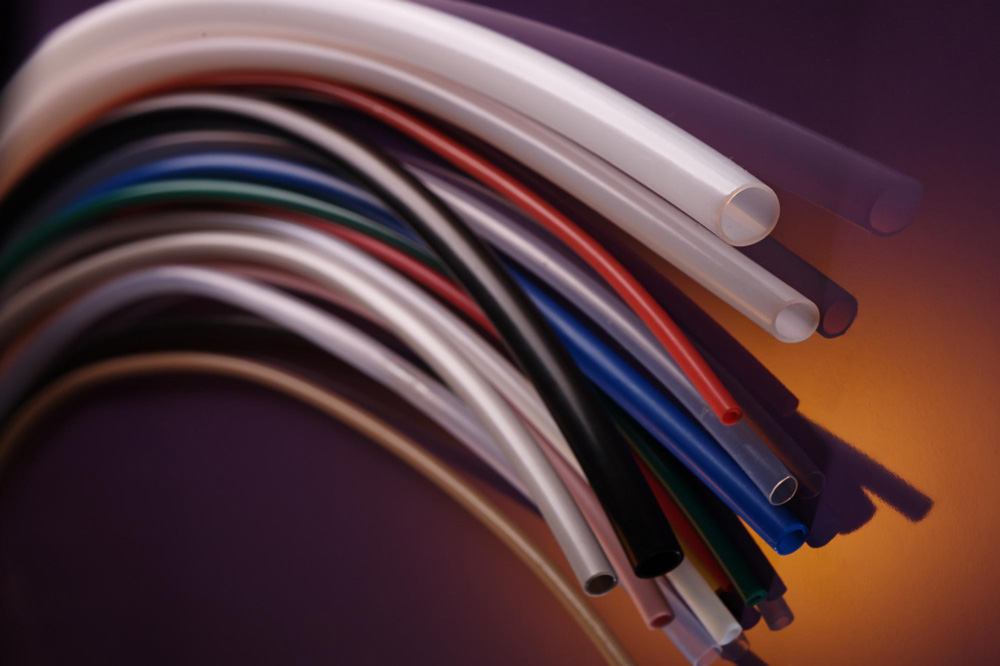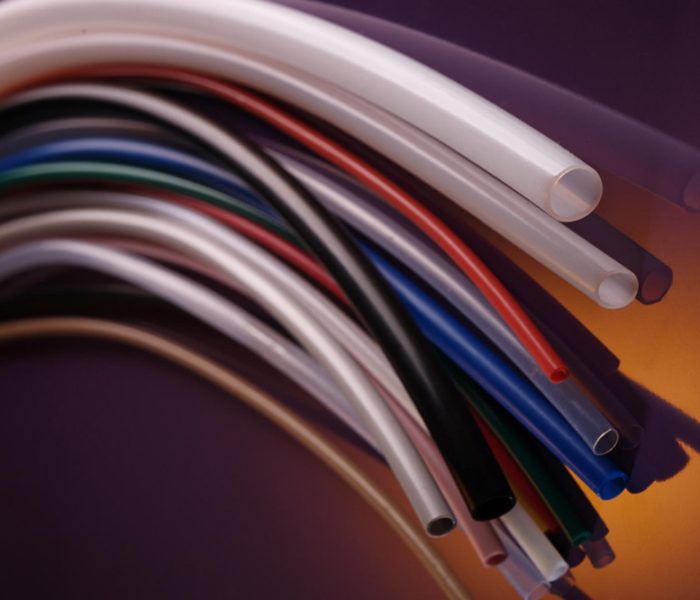What is Teflon Tube?
Teflon is believed to have been discovered in 1938 by Dr. Roy Plunkett. Interestingly, Teflon Tubing was discovered by accident during research into refrigerant gas. The material developed was smooth and extremely strong. Nowadays, we call this material as PTFE. PTFE or Teflon Tube is a synthetic polymer of Carbon and Fluorine called Polytetrafluoroethylene. PTFE is the original and gold standard of fluoropolymer tubing.
PTFE (polytetrafluoroethylene) is known to be the most flexible of all fluoropolymer tubing. It also has the high temperature range (-400°F to 500°F). And, it can resist highly corrosive liquids and gases even at elevated temperatures. Teflon tubing has a smooth surface finish and a low coefficient of friction and lubricity. PTFE tubing is suitable for use in a laboratory for chemical processes, for electrical and automotive applications, etc.

Key Properties of Teflon Tube
Key Properties of Teflon Tube
The distinctive properties of PTFE tubing covers an impressive range. These include a high temperature compared to other polymers, and universal chemical resistance. Other crucial properties are excellent electrical properties at high voltage and high signal frequencies, non-stick characteristics. And, usefulness under extreme low temperatures (cryogenic conditions), and UV resistance. PTFE tubing’s high viscosity in the gel state prevents it from being processed normally in extruders or injection molding. Therefore, PTFE tubing is manufacturing via the paste extrusion process. The paste extrusion yields flexible tubing however, it is batch process. Thus, extended and continuous lengths are limited to the batch size, unlike the melt-processible fluoropolymers FEP, PFA and ETFE.
Industries which rely on Teflon Tubing
The exceptional properties of PTFE tubing make it one of the most popular tubing products in the world. PTFE tube manufacture and Industry experts turn to PFTE tubing due to its ability to transfer fluids without being affected by different chemicals or friction.

Aircraft Industry

Automotive Industry
Car engines rely on PTFE tubing for fuel evaporation, and the low gas permeability of PTFE tubing makes it the perfect fit. The excellent chemical resistance of PTFE tubing is what makes it ideal for automotive applications.

Electrical Industry

Medical Industry

Food Industry

Chemical Industry



+91 7028773123

contact@aftubes.com
